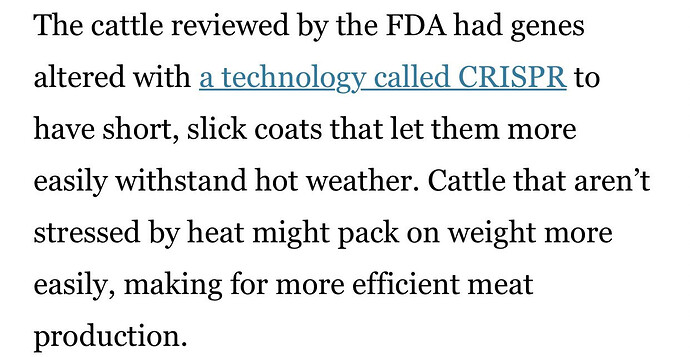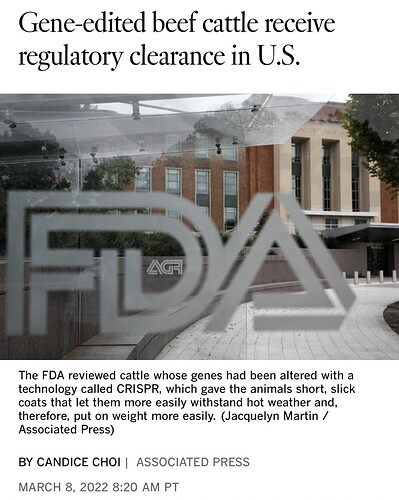Excellent interview with Mike and David. Thanks so much for posting, Colonel Z.
@ColonelZ
Love your going out on the twig, but like my derecho theory, I think the twig is too weak here.
Agree that Dave’s theory about the cattle deaths may be incorrect, but the rest of the interview has quite a few gems to ponder and act upon.
@dogsbreth Would these cattle deaths make sense as part of an attack on small businesses involved in food production? (I don’t know the first thing about cattle or ranching, so I hope it’s not a stupid question.) In other words, would targeting this number of cattle in this particular way make sense if the goal were not so much to reduce meat production in the immediate term, but to put pressure on small operators in order to make it harder for them to stay in business?
In my opinion, an attack on production is not specifically targeted at small food distribution facilities, if I read your question correctly. That all happens a couple of steps downstream from the actual raising and harvesting of beef, in this case, or vegetables and grains and oils and so on.
Primary production raises the beef, it is sold to a meat works and that is the end of that business (normally). In brief, all the butchered meat is graded and rough cut into quarters or sides and auctioned or sold privately based on quality (higher grade generally represents a higher investment by the grower) to a middleman, whether that be a supermarket chain, a high street butcher or an exporter. Everything from futures contracts, where a vendor will be expecting 500 sides of beef per week of X quality that they pay for up front, to the local butcher, who sells 4 sides per week to the local community, will buy from that meat works auction. It may vary from place to place, but in general, the meat works is the main source for all meat in a region. Fun fact, you can go to any meat works and buy directly from them yourself if you want. Most will have a direct to public store window where you can pick up rough or unbutchered meat far cheaper than the supermarket store.
The pressure on a small business (such as a local sandwich shop or diner) will come through the rising costs of the product that is processed for their particular needs. Butchers, whether sole traders or large industrial facilities, make sausages and cured meats and all the packaged fine goods at the market, and they have their own overheads to consider. Throw in scarcity of raw product, or increased transportation costs for raw product having to be brought in from 500 miles away, consumer sentiment about facilities that aren’t making a point about guaranteeing their water supply is trucked in from known good sources, and less people with money to spend on a pre-made sandwich, and there will be indirect pressure put on to those end of chain small businesses.
Business has to adapt to survive, that is built into the nature of the beast. As far as small distributers are concerned, I suppose they might find it easier to distribute a fresh new batch of organic meal worm paste or fried grasshopper burgers if a handy facility springs up and offers them a once in a life time deal to switch up product in their sandwiches, maintain their margins and all they have to do is convince people that it’s better all round to eat that than maybe get some heavy metal poisons from some horrible carbon polluting beef or lamb.
At the end of the day, everything is always about consumer sentiment. My personal view is that, should this event turn out to be a poisoning, that is one of the most damaging events to the current market as could be done. The effects will ripple out across consumer preference as well as the production chain, and the underlying sentiment will be the unspoken claim that someone has on basic resources, such as water. It’s a gangster move, and is grounds for a hanging, in my book.
I don’t know if this answers your question as you intended it, but I hope I covered some of the bases for you.
Thanks for the well-informed reply! I was thinking more that somebody might want to put small-scale primary producers out of business, so that primary production can only be done by one or two big corporations. Since I don’t know how the industry works, I wasn’t sure if that idea made any kind of sense.
Anyhow, I learned a lot from your answer. Your idea that this could be a poisoning that’s meant to make consumers afraid of buying meat makes a lot of sense to me.


